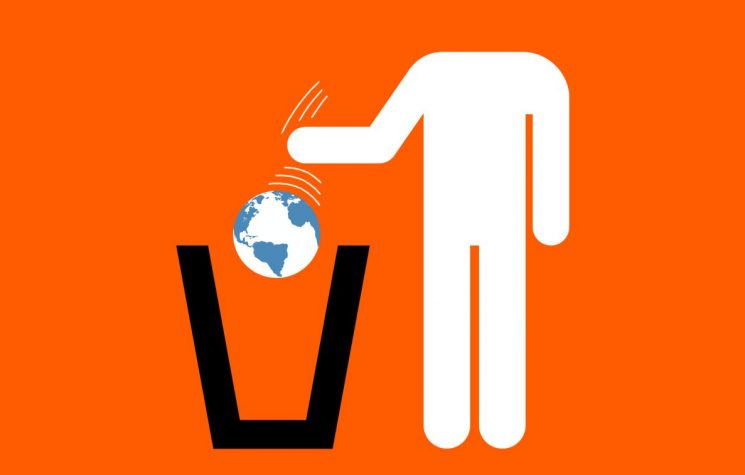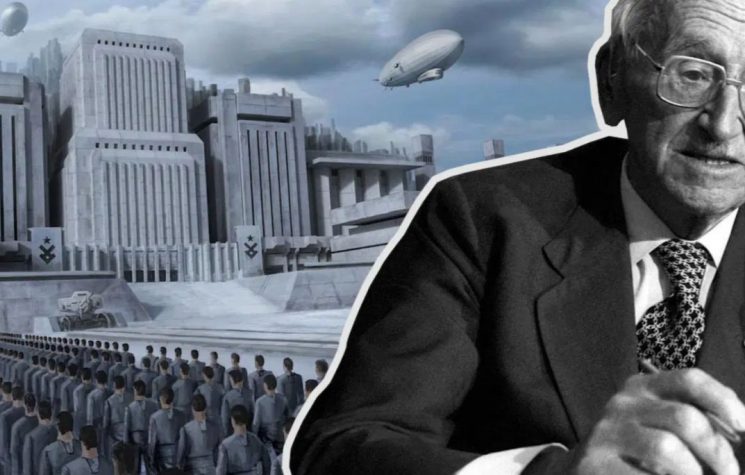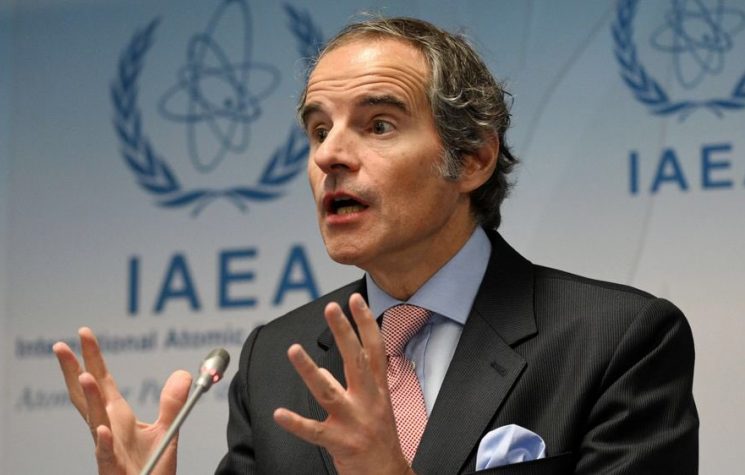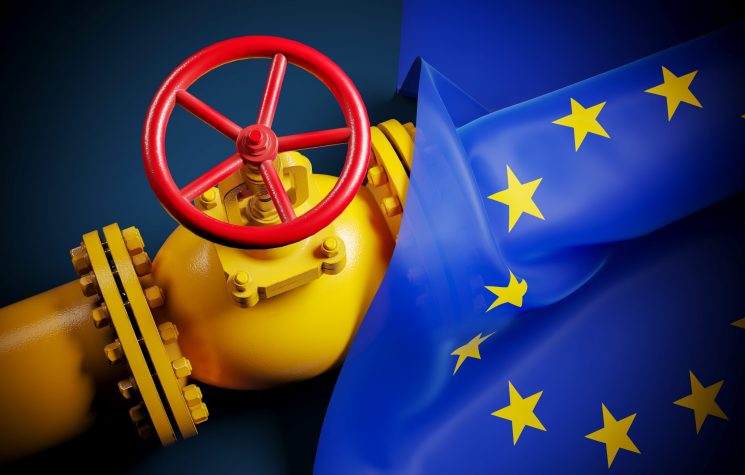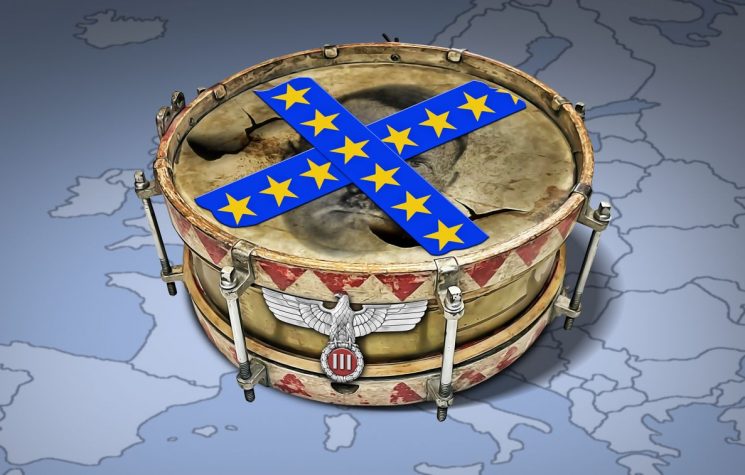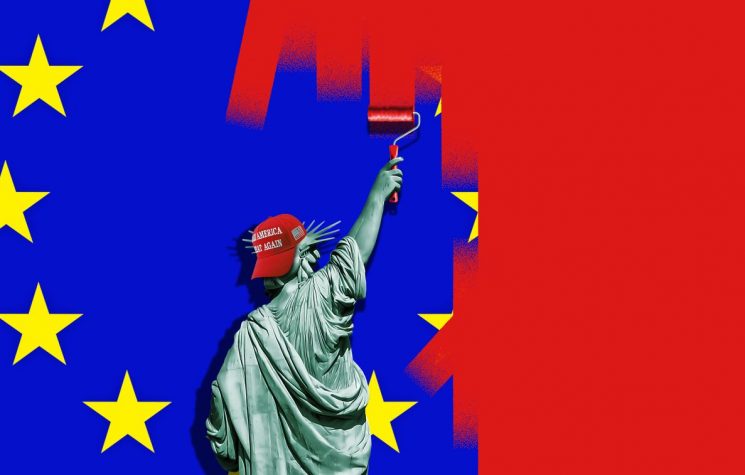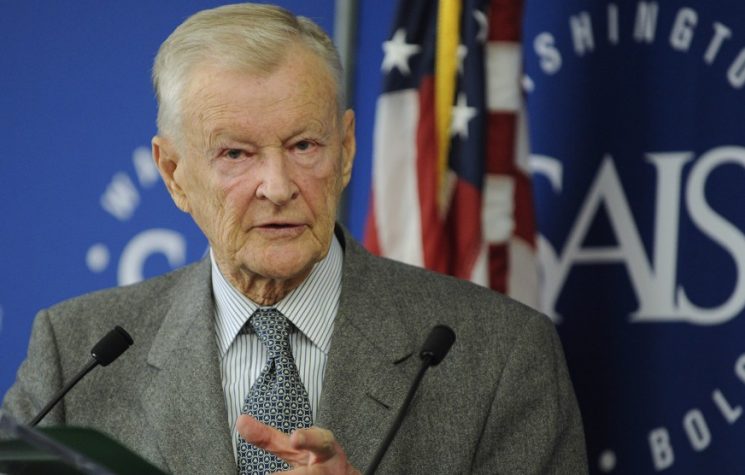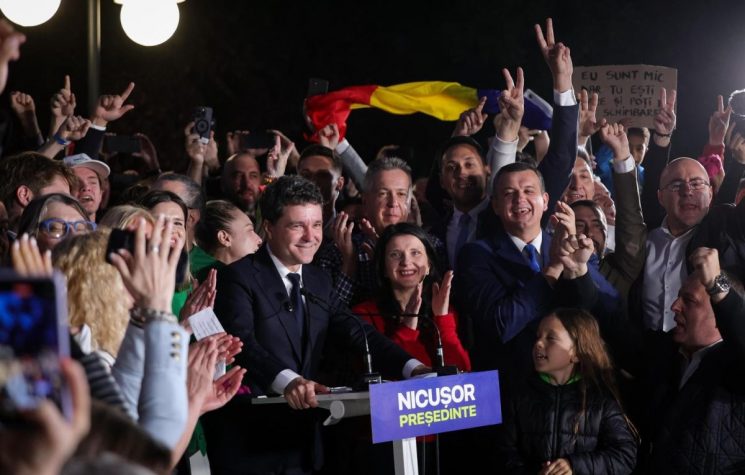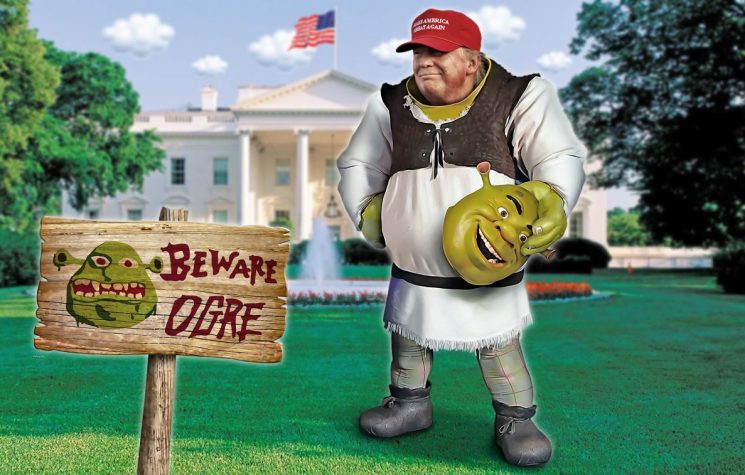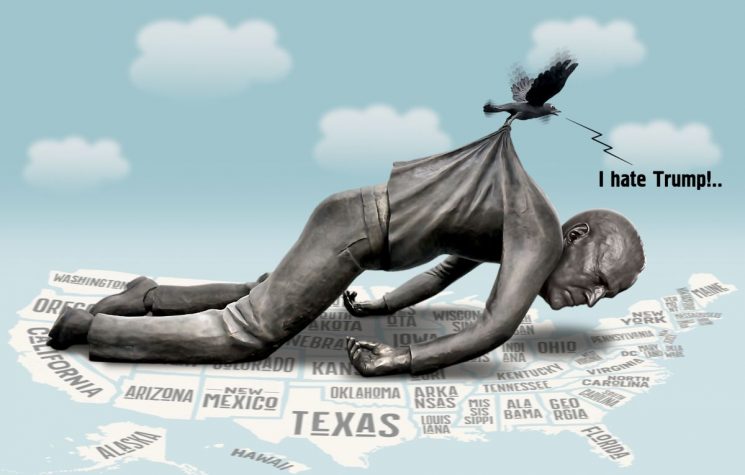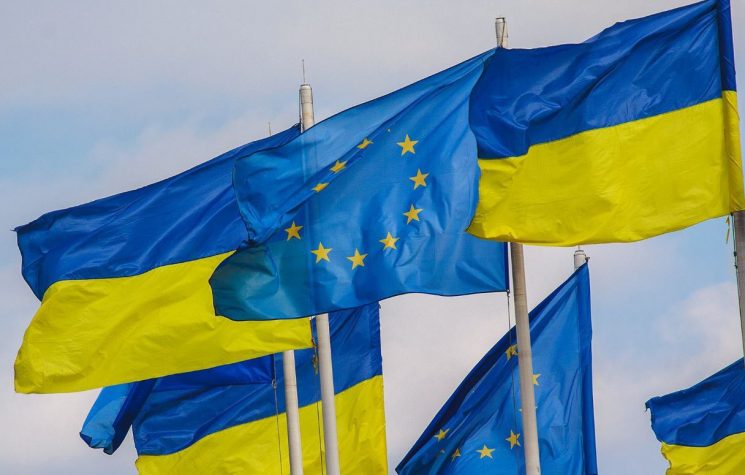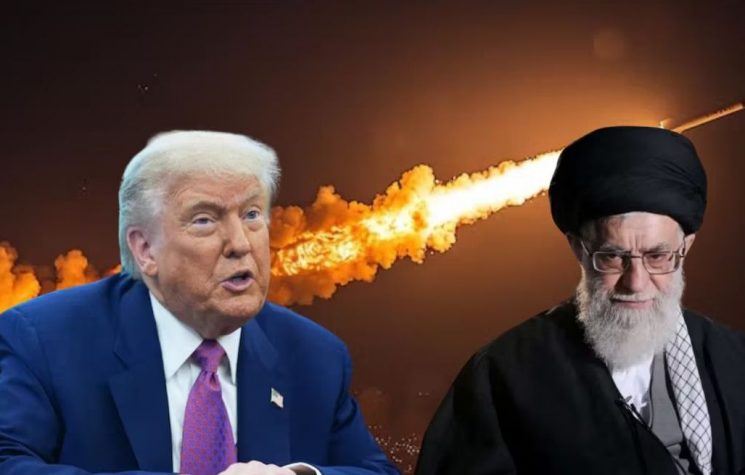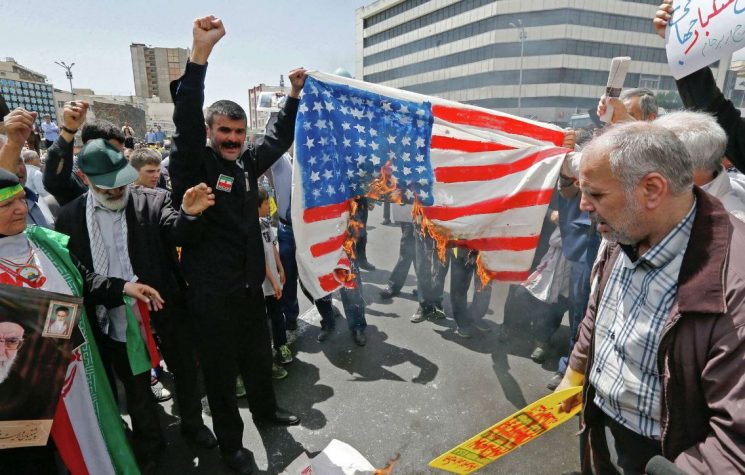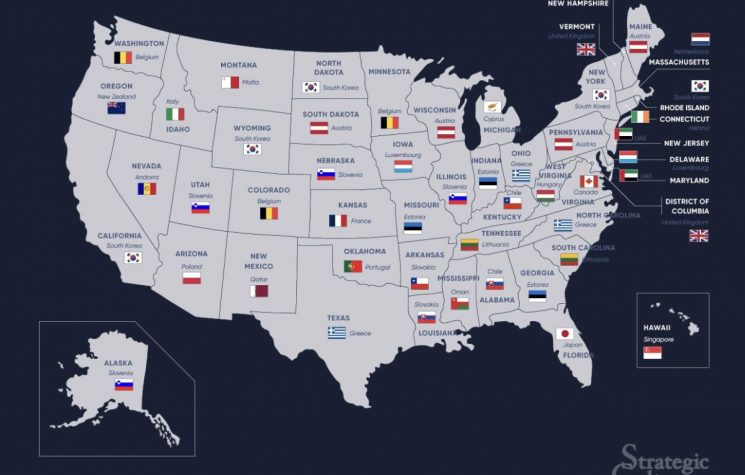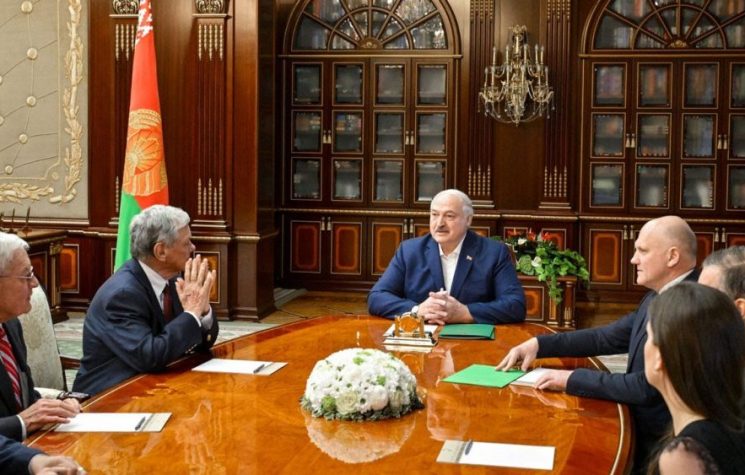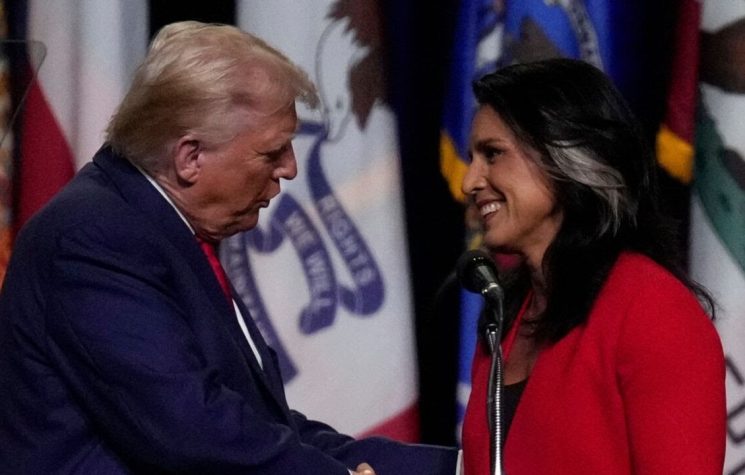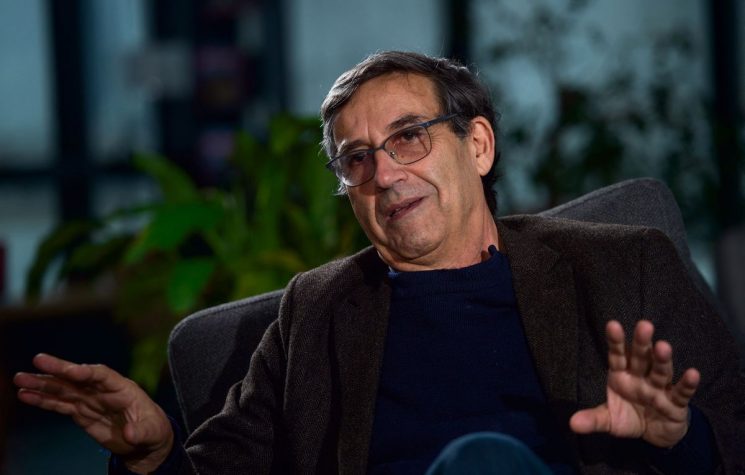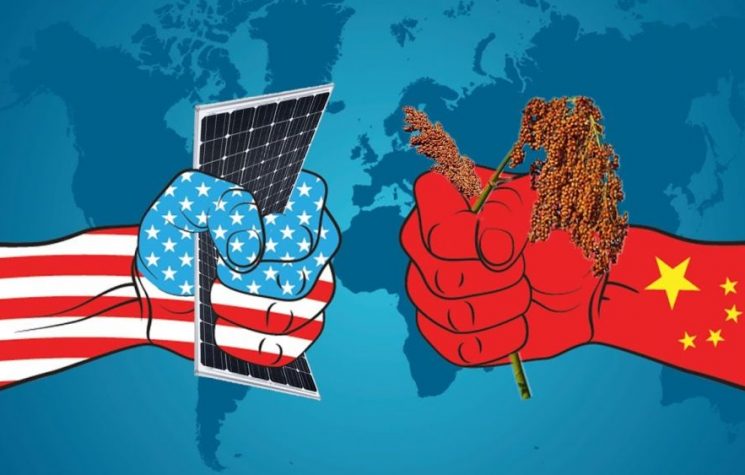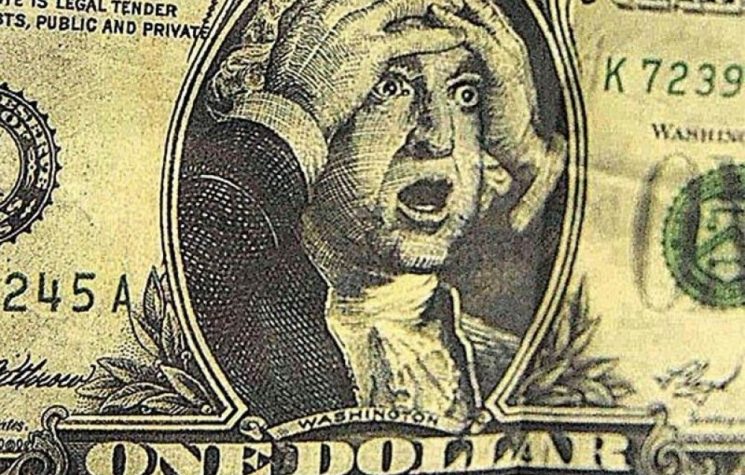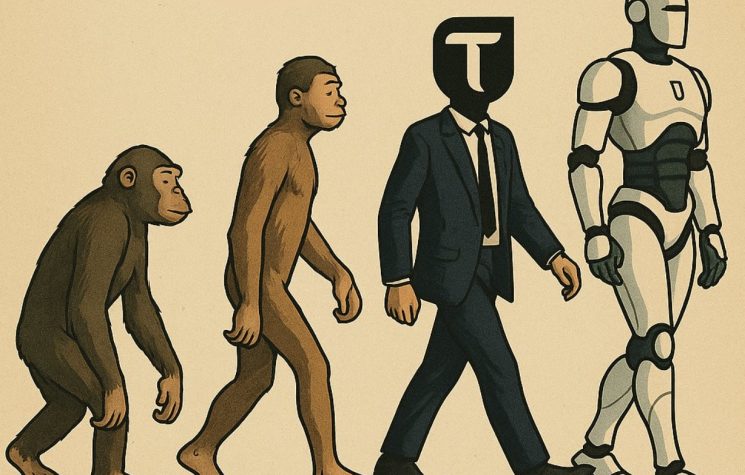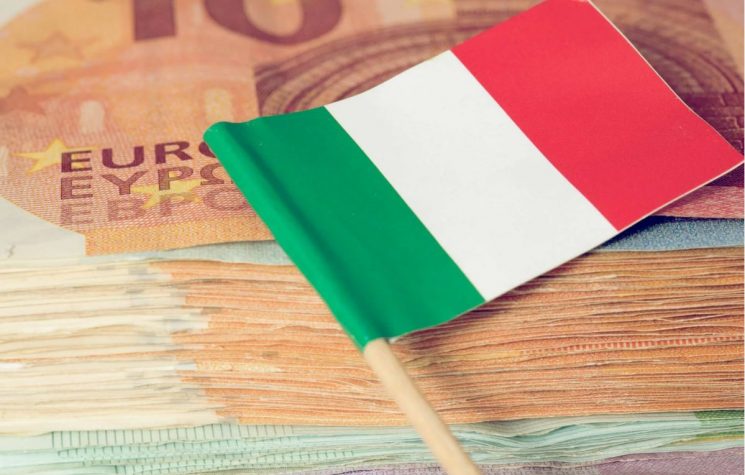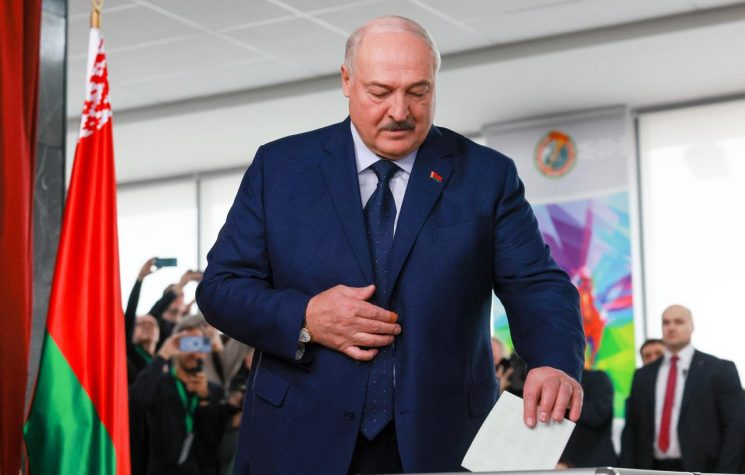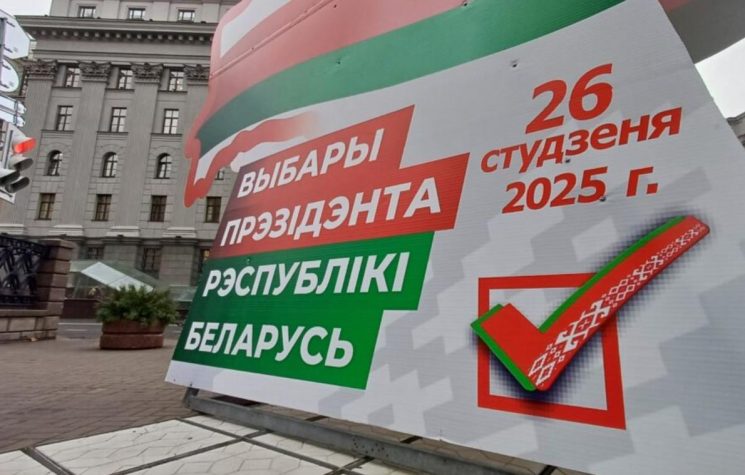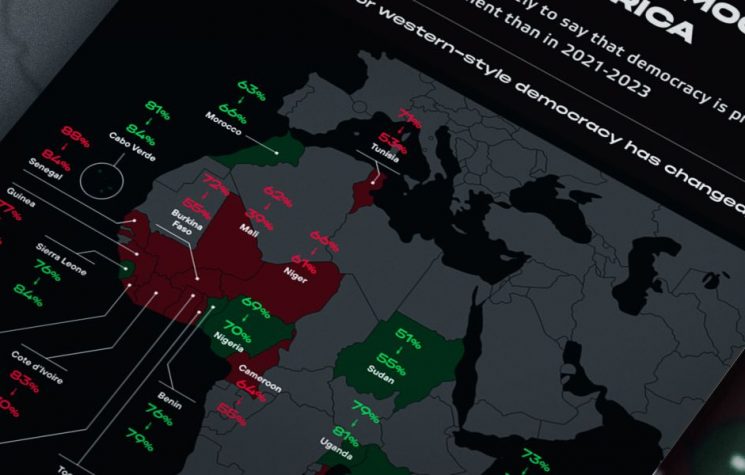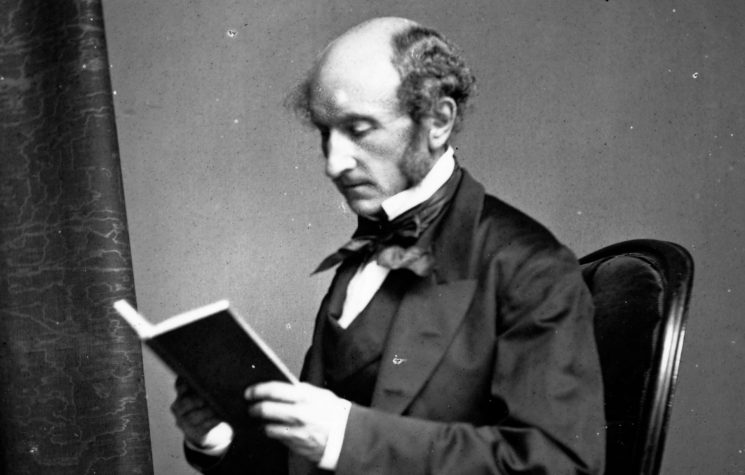Foreboding gray clouds remain on the horizon line for U.S. democracy, Richard Barton writes.
❗️Join us on Telegram![]() , Twitter
, Twitter![]() , and VK
, and VK![]() .
.
Contact us: info@strategic-culture.su
It may be reasonable to start with the Trump administration (2016-2020), especially with the view that he is likely to stage a comeback in the forthcoming presidential elections in November. How close was he to corporations and the very rich and to what extent did he represent their will?
As noted by Eric Lipton in the New York Times, during Trump’s presidency (2016-2020) there was “the merging of private business interest with government affairs”.
So, for instance, billionaire investor Carl Icahn was appointed as a special adviser to the president. Interestingly, as he was not an official government employee he therefore was not subject to conflict of interest divestment requirements. Consequently, Icahn maintained his majority holdings in an oil refinery while advocating for a rule change that would have saved his refinery more than $200 million the previous year.
Let’s take a shortcut and indicate how plutocratic Trump’s government was. Trump’s cabinet had more combined personal wealth than one-third of American households, and Icahn was richer than all of them combined.
As Liz Kennedy from the Center for American Progress points out, corporate interests are in a position to outspend labor or public interest groups on elections. For example, in 2014, business interests spent $1.1 billion on state candidates and committees compared with the $215 million that labor groups spent.
How Much Political Power Do U.S. Corporations Wield?
Unfortunately, the U.S. establishment, facing such huge volumes of money in politics that give lobbyists far greater access to legislators than should be allowed in liberal democracies, does nothing about the problem.
How about the much-vaunted concept of “checks and balances”? The system was designed in theory to allow each branch of a government to amend or veto acts of another branch to prevent any one branch from having too much power.
But the money issue was already addressed by the Supreme Court. In its decisions like Buckley versus Valeo and Citizens United versus FEC, the Supreme Court stated that political donations and spending on lobbying were a form of free speech and therefore constitutionally protected. What a clever way of giving too much power to the very rich! In practice, one can hardly see any checks and balances.
Hardly any high-ranking politician commented on the impact of the above Supreme Court decisions.
One of the exceptions was the ex-president, Jimmy Carter. In 2015, he was asked on a radio show, the Thom Hartmann Program, what he thought about the 2010 Citizens United decision and the 2014 McCutcheon decision, both decisions by the five Republican judges on the U.S. Supreme Court. These two historic decisions enable unlimited secret money (including foreign money) now to pour into U.S. political and judicial campaigns.
President Carter elaborated as follows: “It violates the essence of what made America a great country in its political system. Now it’s just an oligarchy with unlimited political bribery being the essence of getting the nominations for president or being elected president. And the same thing applies to governors, and U.S. Senators and Congress members. So, now we’ve just seen a subversion of our political system as a payoff to major contributors, who want and expect, and sometimes get, favors for themselves after the election is over… At present, the incumbents, Democrats and Republicans, look upon this unlimited money as a great benefit to themselves. Somebody that is already in Congress has a great deal more to sell.”
It would be a serious omission not to note the behavior of those running the show. After making that damning observation, the former president was cut off by the program, even though the statement by Carter should have been the start of the program, not its end. It should be noted that the program didn’t end with an invitation for him to return to discuss this crucial matter in depth – something for which he’s more than qualified. If you can’t question American democracy in the media, one can have a distinct impression about the absence of democracy in the U.S. and the media bias.
While only six corporations control 90 percent of the media in the U.S. (37 years ago around 60 companies) it is interesting to see how despite widespread brainwashing ordinary Americans are critical of the excessive influence of corporations. In 2009, before the Supreme Court’s ruling in the Citizens United vs. FEC case removing constraints on corporate political spending, as many as 80 percent of Americans agreed with the statement that large political contributions would prevent Congress from tackling the important issues facing America today, like the economic crisis, rising energy costs, reforming healthcare, and global warming.
Even more interesting information on what Americans think was provided by Ben Norton, founder and editor of Geopolitical Economy Report, who concludes that the U.S. is not a democracy. He recalls a study last year that was done by a group calling itself the Alliance of Democracies, which is backed by NATO. It concluded that 49 percent of people in the U.S. consider their government a democracy, whereas over 80 percent of people in China consider their government to be a democracy.
Norton notes that according to the people who live in the country, China is a democracy while the U.S. is not. And then he adds: “You cannot have a functioning democracy when you have billionaires and large corporations that can decide what the government will actually be.”
Then he focuses on an essential difference between the political systems of the U.S. and the People’s Republic of China. “As for China, with its unique system of socialism with Chinese characteristics, there is a system in which working-class people can be represented by the government because the government is not controlled by corporations. That’s the fundamental difference between the Chinese and the U.S. governments,” says Norton.
Is There Light at the End of the Tunnel?
The earlier-mentioned Liz Kennedy is very helpful in making one realize that the corporations running the U.S. are not a recent phenomenon. Some historical documents and speeches fully confirm it.
Let’s read just a couple of them quoted in Senator Sheldon Whitehouse’s book, Captured: The Corporate Infiltration of American Democracy. America’s founding fathers recognized the danger of corporate capture. As early as 1816, Thomas Jefferson warned the new republic to “crush in its birth the aristocracy of our monied corporations which dare already to challenge our government to a trial of strength, and bid defiance to the laws of their country.”
Nearly a century later, President Theodore Roosevelt, in his annual address to Congress in 1907, said: “The fortunes amassed through corporate organization are now so large, and vest such power in those that wield them, as to make it a matter of necessity to give to the sovereign – that is, to the Government, which represents the people as a whole – some effective power of supervision over their corporate use.”
Importantly, President Roosevelt was responsible for the first federal ban on corporate political contributions. With the 2010 decision of the Supreme Court, the ban is no longer valid.
Notably, Francis Fukuyama is often thought of as an advocate of the presumed virtues of liberal democracy. However, he has also explored the political decay in the U.S. For instance, in his book The Origins of Political Order and Political Decay [1], he diagnosed the ills of U.S. democracy and put an open question as to remedies. Within the failed political system, he pinpointed his opposition to the following:
1) Huge volumes of money in politics that give lobbyists far greater access to legislators than should be allowed in liberal democracies.
2) Corporate America advocates free trade and open immigration – what in his view could be called the Wall Street Journal worldview.
3) Transnational corporations ruling the U.S. via practicing “vetocracy” to prevent the assertion of public interest in policies.
4) Feeding the public with untrue or distorted information. He noted in 2017 that great numbers of American citizens would not believe such mainstream media like the New York Times or CNN.
5) The Electoral College system and the makeup of the Senate, which allow – this time Republicans – to hold power despite winning fewer popular votes at both national and state levels.
6) Too many decisions are being taken through the legal process rather than a vote of representatives.
7) Vetocracy which amounts to the existence of too many veto players which makes political decision-making very difficult if not impossible.
Frankly speaking, there are other undemocratic practices that Fukuyama subjected to perhaps a deliberate omission, or partial treatment. Therefore, one is inclined to suggest that his picture of the failed corporate state has some other serious shortcomings. Among them postal voting and voting without ids or with ids without photos. After all, electoral fraud deserves a great deal of attention if as many as 77 percent of Republicans (not just Donald Trump and Mike Johnson) believe that it is widespread. One doesn’t need much imagination to envisage some of the more than 22 million illegal Hispanic migrants voting without id in the forthcoming elections. In all probability for Biden in gratitude for allowing illegal entry into the U.S.
Does Fukuyama see any effective solutions to repair the failed political system in the U.S.? In his view, there are two reasons why it is impossible to reverse these tendencies toward decay and reform the system in the U.S. The first reason: politicians of both parties have no incentive to cut themselves off from access to interest-group money, and the interest groups don’t want to create a system where money no longer buys influence. The second reason: reformers disgusted with democratic decay expanded the use of ballot initiatives to get around unresponsive government while ordinary citizens turned out unable to make great numbers of complex public policy choices. The result was filling the void by well-organized groups of activists who were unrepresentative of the public as a whole.
Wider Internal Ramifications of Corporate Power
Perhaps, nothing can demonstrate corporate control better than the redistribution of wealth in the U.S. In this context, it should be recalled that President George W. Bush between 2001-2003 knowingly put the income distribution into reverse gear by introducing $1.35 trillion tax cuts in which the wealthy were given super benefits. All this was given supposedly logical justification in terms of skills and education. [2] An even deeper understanding of the problem provides the background of changes favoring the rich within 30 or so years before President Obama came to power in 2008. Referring to Ha-Joon Chang, a specialist in development economics, one may point out how, for instance, American CEOs’ pay reached exorbitant levels where contemporary CEOs earn approximately 10 times more than their counterparts in the 1960s. [2] At that earlier time, they were awarded 30 to 40 times as much as the average earnings of a worker. Now the average CEO compensation (salaries, bonuses, pensions, and stock options) in the United States is 300-400 times the average worker compensation (wages and benefits). It may be of considerable interest to note that executive pay is much less in Western Europe and Japan. In China, the CEOs are paid just between 3-6 times the average worker’s pay.
Some most updated data on economic inequality in the U.S. comes from Matthew Desmond’s new book, Poverty, by America. Key points deserve to be acknowledged. The main line of his argument boils down to exploring why the U.S. poverty rate hasn’t improved in half a century. Over the last 50 years, the poverty rate (11-12 percent) hardly changed. He suggests that many Americans and corporations profit from tens of millions of people having so little. Banks make billions a year in overdraft fees. Companies can pay their workers low wages and save on benefits.
As far as real wages are concerned, for many Americans today their wages are roughly what they were 40 years ago.
Another anomaly is that in 2020, the federal government spent $53 billion on direct housing assistance for the needy. That same year, however, it spent over $193 billion on homeowner subsidies. In 2020, 18 million people were living in deep poverty. This category included people who make less than $6,380 a year, or families of four living on less than $13,100.
The racial wealth gap is as large as in the 1960s. In 2019, the median white household had a net worth of $188,200 compared with $24,100 for the median black household. This indicates that Corporate America hasn’t solved the endemic racial inequality problems.
Another measure of social decay is the condition of U.S. infrastructure. To realize how bad it is, let’s give examples quoted by Donald Trump in his book Crippled America. [3] The first example about the airports is actually quoting President Biden who was vice president at the time: “If I blindfolded someone and took him at two o’clock in the morning into the airport in Hong Kong and said, ‘Where do you think you are?’, they’d say, ‘This must be America. It’s a modern airport.’ But if I blindfolded you and took you to La Guardia Airport in New York, you’d think, ‘I must be in some third-world country.’”
The second comment is by Trump himself about the glaring neglect of bridges in the United States. Trump commented: “This country’s infrastructure is falling apart. According to engineers, one out of every nine bridges in this country is structurally deficient, approximately a quarter of them are already functionally obsolete, and almost a third of them have exceeded their design lives.”
Not surprisingly, the above descriptions contrast sharply with the recent account of a brief visit to Moscow by American media broadcaster Tucker Carlson. Dominic Mastrangelo, a staff writer at The Hill covering media and politics highlighted the following remarks by Carlson:
“What was very shocking, very disturbing was the city of Moscow, where I’d never been … it was so much nicer than any city in my country,” he said, calling the Russian capital “so much cleaner, and prettier aesthetically – its architecture, its food, its service – than any city in the United States.”
The question that remains to be answered is why is there so much inequality, poverty, and neglect in the U.S. The answer suggests itself. It is not just corporate greed but also corporate foreign policy. It is well-known that chiefly as a result of American interference and wars all over the world, the U.S. federal debt has increased to $33.17 trillion in 2023.
Wider External Ramifications of Corporate Power
Interference in Chechnya:
Indeed, to grasp the corporate rule in the U.S. one has to have a glimpse of U.S. foreign policy. One of the first interferences by the U.S. after the collapse of the USSR was its support for Chechen separatists. The aim, though not officially stated, was the disintegration of the Russian Federation and gaining access to its vast mineral resources.
As we know, President Putin accused U.S. intelligence services of providing direct support to “terrorists” in Russia. In Oliver Stone’s 2017 documentary The Putin Interviews, Putin commented: “When those problems in Chechnya and the Caucasus emerged, the Americans, unfortunately, supported those processes. We assumed the Cold War was over, that we had transparent relations, with the rest of the world, with Europe and the U.S. and we certainly counted on [their] support, but instead we witnessed that the American intelligence services supported [these] terrorists…”
The Rambouilet conference and the bombing of Serbia:
Another U.S. involvement was in the Balkans. The ex-Australian Prime Minister, Malcolm Fraser, with Cain Roberts, do not beat around the bush disclosing some confidential details in their book. [4] First of all, the U.S. Secretary of State Madeleine Albright, known for her supremacist assertion that “Americans deserve to lead because they can see further than other people”, was instrumental in organizing the Rambouillet conference with the purpose of giving the United States and NATO a green light to bomb Serbia in 1999. She had the powerful backing of President Bill Clinton and British Prime Minister Tony Blair. According to reports, she believed that four or five days of bombing would bring Serbian leader Milosevic to heel. In fact, the bombing campaign went on for 78 days during which some suburbs were wiped out.
Strictly speaking, the terms formulated at Rambouillet were so harsh that no Serbian leader could have accepted them. In addition, in 1998 the U.S. State Department removed the Kosovo Liberation Army from its list of terrorist organizations.
Malcolm Fraser and Cain Roberts refer to William Shawcross who in Deliver Us From Evil, charges the U.S. with encouraging Croatian ethnic cleansing of Serbs from the Krajina. That was the largest ethnic cleansing in the Balkans involving 250,000 people. Curiously, it was hardly mentioned and never condemned by NATO and the West.
Why such a barbaric action was undertaken against Serbia remains the key question. Well, as some say, the truth is what we are not told. In this case, it is possible to suggest that the main purpose was to eliminate the last European ally of Russia outside the Сommonwealth of Independent States (CIS).
The real background of the U.S. invasion of Afghanistan:
It was all about gas and oil. Years before the 2001 U.S. invasion, the Taliban officials were given red-carpet corporate treatment in Texas and promised a bonanza of dollars if a proposed pipeline project went ahead. But when confronted with the Taliban’s refusal to accept U.S. conditions (the negotiations broke down with the Unocal company because of pesky transit fees) a military option was raised. In July 2001, at the Group of Eight summit in Naples, it was decided that the U.S. would take out the Taliban by October of that year. The war in Afghanistan was sold to the public as a reaction to the attacks on the World Trade Center on September 11, 2001, and this is the version officially maintained nowadays. How hypocritical can you get?
Ironically, the undemocratic U.S. neither got its oil and gas nor transplanted its brand of “democracy”. After 20 years of occupying Afghanistan, the U.S. had to finally pull out in disgrace.
Invasion of Iraq:
From details obtained under the Freedom of Information Act, we learn that in the period 2001-2003, plans to invade Iraq had been initiated to control the country’s vast oil wealth before the full formulation of the charges of possessing Weapons of Mass Destruction (WMD) by Saddam Hussein. Yet, despite a failure to obtain any solid evidence of WMD in Iraq, the war was sold to the public as one to prevent the production and use of such weapons. All the main advocates of the war sounded apocalyptic. Thus Donald Rumsfeld, the U.S. Secretary of Defence (2001-2006) stated on the imagined WMD: “We know where they are.” Rumsfeld also asserted: “Within a week, or a month, Saddam could give his WMD to Al-Qaeda.” Tony Blair sounded equally alarmist and categorical, saying: “Saddam has chemical and biological weapons that could be launched within 45 minutes.”
All these assertions by U.S. and British leaders were later found to be lies and falsehoods.
Also, Francis Fukuyama in his comments on the Iraqi war is unfair. He talks about the U.S.’s ambitious project of toppling Saddam Hussein and introducing democracy in Iraq and the Middle East. There is no word about Saddam not having WMD. [5] Embarrassingly, it was the Australian PM John Howard, a close ally of George W. Bush who spilled the beans by admitting that oil was the main reason for the 2003 invasion of Iraq.
Researcher Raymond Hinnebush cogently captured the West’s dilemma over the Iraqi oil trade. Let me quote him:
“While the conservative Gulf monarchies, by virtue of their security dependence on the U.S. and their Western investments, had a shared interest with the West in ensuring stable unpoliticized access to oil at moderate prices, Iraq had no such stake. Iraq was, of course, in dire need of revenues and had to sell its oil at prices consumers would pay; but Saddam’s threat to make the terms of oil sales conditional on a favorable Western policy in the Arab-Israeli conflict caught U.S. politicians between two powerful contradictory domestic demands – for cheap gasoline and the advancement of Israel’s interests. What was at stake, therefore, was not access to oil but access on Washington’s terms, not Saddam’s. [6]
The present-day situation in the world is less and less in the U.S. favor. The U.S. is in a variety of degrees embroiled in conflicts that require huge financial assistance and spending. The main conflicts it is involved in include Taiwan versus China, the Middle East, and the conflict in Ukraine. It lost its influence in Saudi Arabia which is presently cooperating with Russia. In Ukraine, anyone in his/her right senses realizes that even with the blocked $60 billion-plus in Congress it has no hope of defeating Russia. Of little consolation are claims that 90 percent of the designated U.S. military assistance is going to come back to the U.S. in the form of orders and jobs for the military-industrial complex. Under these circumstances, French leader Emmanuel Macron is getting desperate and proposes sending NATO troops to Ukraine.
Despite the emergence of a multi-polar world, the U.S. establishment doesn’t give up the idea of leading the world. In October 2023, Secretary of State Antony Blinken stated: “The U.S. does not intend to give up dominance of the world. It [the world] still needs American leadership.”
And let’s recall what the Republican contender in the 2024 presidential race, Donald Trump, said in his previous presidential campaign. His random thoughts were as follows:
“We are unique among the nations of the world, and we should be leading, not following. Winning not losing. America is the leader of the free world. We’ve earned the right to boast and make it clear that we are ready and willing to do whatever is necessary to defend this country and liberty anywhere in the world.” [3]
Do we have any reasons to assume that he thinks differently now?
Indeed, foreboding gray clouds remain on the horizon line for U.S. democracy.
REFERENCES:
[1] Francis Fukuyama, The Origins of Political Order and Political Decay, Farrar, Straus and Giroux, New York, 2014, pp. 292-294
[2] H. Chang, 23 Things They Don’t Tell You About Capitalism, Allen Lane, London, 2010, pp.148-150
[3] Donald Trump, Crippled America, Threshold Editions, New York, 2015, p.120
[4] Malcolm Fraser with Cain Roberts, Dangerous Allies, Melbourne University Press, 2014, pp.188 – 190
[5] Francis Fukuyama, State Building, Profile Books Ltd, London, 2004, pp.128-129
[6] Raymond Hinnebush, The International Politics of the Middle East, Manchester University Press, 2003, pp. 214–218










